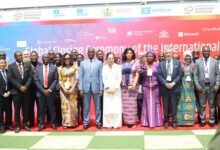GHS confirms 9 cases of dengue in Eastern Region …cautions public against mosquito bites

The Ghana Health Service (GHS) has confirmed nine cases of dengue in the Eastern Region, urging the public to take precaution against mosquito bites to avoid exposure.
It said following test results which confirmed the infection among the patients, they were being managed as “non-severe cases at home” as detailed investigations were ongoing on the outbreak.
“Dengue transmitting mosquito bites during the daytime. Individuals must protect themselves by wearing full sleeve clothes and long dresses to cover the limbs,” a statement issued by the service in Accra, yesterday advised.
According to the statement, although the patients initially reported with malaria symptoms, they failed to respond to antimalarial treatment, prompting further investigations.
“Following the development, a team from the national level made up of entomologists and epidemiologists have since joined the regional team to undertake a detailed outbreak investigation,” it said.
In view of that, the GHS said all health facilities have been put on high alert for early detection, health staff sensitisation and enhanced public awareness on the disease.
It added that a National Emergency Operation Centre (EOC) meeting has been held on the threat while an enhanced surveillance as well as entomological assessment in the affected areas was being undertaken.
Dengue is a viral infection that spreads through the bite of an infected Aedes mosquito to people.
Most people who get dengue will not have symptoms but those who do, the most common symptoms include high fever, headache, body aches, nausea and rash.
Most, however, will get better within one to two weeks, although some people with severe dengue can experience bleeding and require hospital care and in some cases, death.
Treatment of dengue is mainly supportive care with rehydration (lots of fluids), pain relief, a lot of rest and other measures as there are no specific medicine for its treatment.
In clinical settings, a suspected case definition for dengue may include any person with an acute febrile illness of two to seven days duration accompanied by two or more of the following symptoms: headache, retro-orbital pain, myalgia, arthralgia, rash, haemorrhagic manifestations, or leukopenia.
A confirmed case requires laboratory confirmation through positive IgM antibody, a four-fold or greater rise in IgG antibody titres, positive PCR, or viral isolation.
Other public preventive measures against dengue are eliminating mosquito breeding sites by removing standing water where mosquitoes can lay eggs and proper waste management around homes to reduce potential mosquito breeding grounds.
BY ABIGAIL ANNOH







